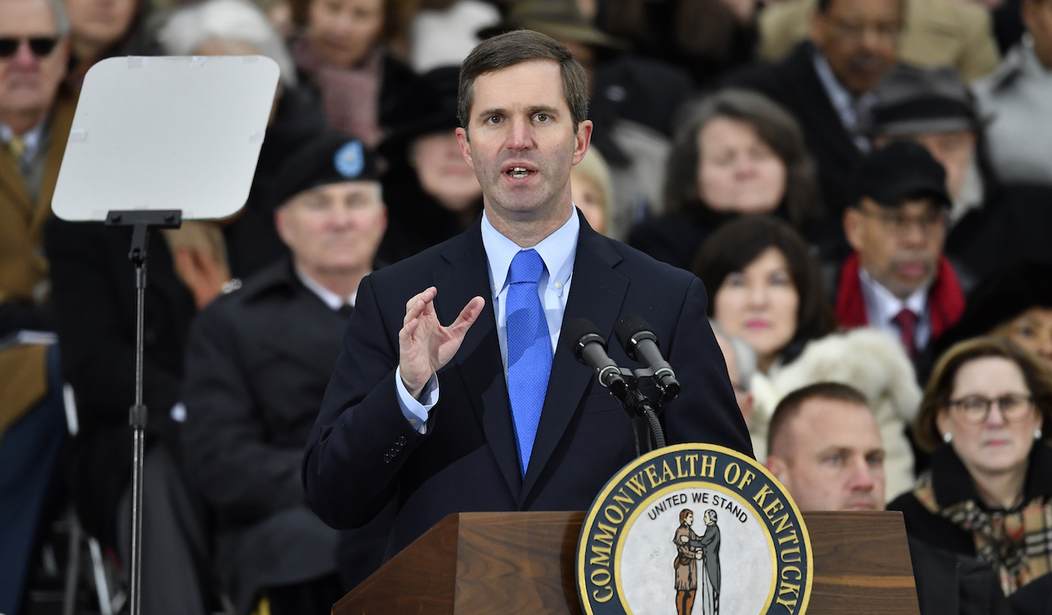The State Treasurer of Kentucky has a message for financial institutions that boycott fossil fuel companies – don’t do it. Otherwise, they risk divestment from the state in the coming months. Many financial institutions are boycotting fossil fuel companies by not lending capital to them, thus choking off funding of those companies and their operations. Instead, the banks commit to only lending money to clean energy companies.
The Republican-led Kentucky Legislature enacted a law in 2022 that requires the state treasurer’s office to publish an annual list of banks that engage in boycotting energy companies. State entities have 30 days to notify the treasurer’s office if they have direct or indirect holdings with those banks. Those entities are responsible for notifying the firms. Any financial institution on the list has 90 days after receiving notice to make a choice – either end the boycott or face divestment.
Kentucky is hugely dependent on fossil fuels and Allison Ball, the state treasurer, issued a statement to remind everyone of the importance of the industry.
“When companies boycott fossil fuels, they intentionally choke off the lifeblood of capital to Kentucky’s signature industries,” Kentucky Treasurer Allison Ball said in a statement. “Traditional energy sources fuel our Kentucky economy, provide much needed jobs, and warm our homes. Kentucky must not allow our signature industries to be irreparably damaged based upon the ideological whims of a select few.”
Kentucky’s economy depends on fossil fuel production and Kentuckians are fossil fuel customers. About 71% of electrical power consumed by the state’s residents in 2021 was coal-fired. It was the fourth-largest share in the country. Kentucky’s energy prices are the second-lowest of any state east of the Mississippi River. The treasurer’s office said that ther are 143,994 energy sector jobs in Kentucky. That is about 7.8% o the state’s workforce.
The Energy Information Administration (EIA) data shows that Kentucky’s coal mines produced over 26 million tons of coal in 2021. Kentucky has the third-most operating coal mines in the country, with only West Virginia and Pennsylvania ahead of the state.
The list of eleven financial institutions on the treasurer’s list include BlackRock and JPMorgan Chase, two of the largest in the United States. Both companies deny participating in boycotts.
BlackRock is the world’s largest asset manager with about $8 trillion under management while JPMorgan Chase is America’s largest bank with over $3 trillion in assets. Both firms pushed back against Kentucky’s claims that they’re boycotting energy companies.
JPMorgan Chase spokesperson Patricia Wexler told FOX Business in a statement: “The fact is that we are among the largest financiers of the U.S. traditional and renewable energy industries, including in Kentucky where we serve some of its largest energy companies and utilities. We believe our business practices are in line with Kentucky law, and we are hopeful a deeper look at these facts would lead to reconsideration.”
A BlackRock spokesperson told Fox Business, “BlackRock’s only agenda is delivering the best financial results for our clients. On behalf of our clients, we have invested approximately $276 billion in energy companies globally. BlackRock does not boycott energy companies and will continue to be investors across the energy sector.”
However, JPMorgan Chase & Co and Citigroup (also on the list) are both members of the Net-Zero Banking Alliance. That group of banks was convened by the United Nations with a mission that states they are “committed to aligning their lending and investment portfolios with net-zero emissions by 2050.” Hmm.
Other Republican-led energy producing states like Texas and West Virginia also pledged to divest from banking institutions that do not lend to energy companies.
When financial lenders go woke by aligning themselves with environmental, social, and governance (ESG) standards, they focus on green energy investments to appease progressive activists. States that produce fossil fuel energy have a right to protect their own interests. If those companies want to cut off lending to traditional energy companies, turnabout is fair play. Energy-friendly states can invest their funds with others.









Join the conversation as a VIP Member